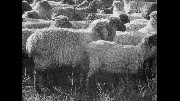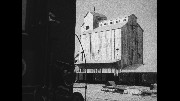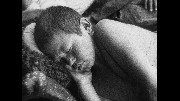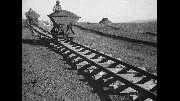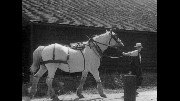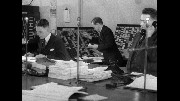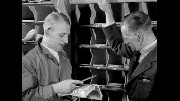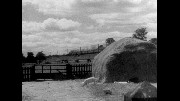The Soviet Influence: From Turksib to Night Mail (1929-1936) DVD9 and Blu-Ray BFI
on January 3rd, 2022 at 15:46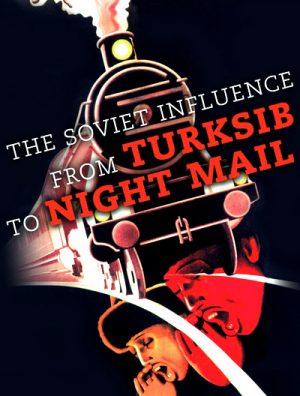
Victor Turin was educated in the States, learnt the movie business at the Vitagraph, became a western fan and returned to the Soviet Union to direct the great 78-minute documentary Turksib – about the heroic transformative building of the railway linking Turkestan to Siberia. It's propaganda, but it's also a lyrical, humane, superbly edited masterpiece that greatly influenced the British documentary movement, of which six 1930s examples are included in this excellent compilation, culminating in another railway classic, Night Mail.
Both films are early instances of cinema being used to inform and shape popular opinion about everyday life, while exploring the formal, artistic and poetic potential of the medium.
BD50, DVD9 | 1080p AVC, PAL | 170 min | 39.4 Gb + 6.47 Gb
Language: English
Subtitles: English intertitles for silent films
Genre: Documentary

In 1930, documentary film pioneer John Grierson prepared a version of the Soviet documentary Turksib (1929, John Turin) that was shown to British audiences. That impressionistic documentary film and its visual montage style had a profound effect on British documentary filmmakers in the years to follow. This collection from the BFI, The Soviet Influence: From Turksib to Night Mail collects that influential film together with a few British documentary shorts from the 1930s that followed in its wake, which were heavily influenced by it.
Turksib itself, a silent film presented here with a newly commissioned score by Guy Bartell focuses on the problems faced by regional farmers in Turkestan and the creation of the Turkestan-Siberian railway. It is filled with impressionistic images of the land and its people juxtaposed with the inevitable juggernaut of Soviet industrial expansion.
Accompanying Turksib is The Worker’s Topical News No.1, a newsreel which accompanied Turksib’s British premiere. It highlights a workers’ movement and unemployment demonstration and features a roaring new score by Neil Thomas. Also included is Australian Wine (Paul Rotha, 1931), a really sleek-looking promotional film for, well, Australian wines that heavily employs the use of Soviet montage techniques and also includes a new score from Neil Thomas. The Country Comes to Town (Basil Wright, 1931) is a “talkie” that highlights the reliance of British cities on the rural areas, following the countryside’s production of dairy products and eggs all the way back to the hustle and bustle of the big city. Shadow on the Mountains (Arthur Elton, 1932) is a classic English pastoral, with impressionistic views of the English countryside as it expounds the virtues of farming and shepherding. The Face of Britain (Paul Rotha, 1935) is another stopover on the road to never ending progress, as the implications of Britain’s need for energy are highlighted in this call for socialist planning for the benefit of society.
Finally, the much heralded Night Mail (Harry Watt, Basil Wright, 1936) closes out the collection. It is the culmination of the Soviet influence over British documentarians with all the techniques garnered through the years focused to pinpoint precision on a thoroughly British film. The documentary features music composed by the great Benjamin Britten and a poem by the equally great W.H. Auden and tells of a mail train traveling from London to Scotland, “This is the Night Mail crossing the border / Bringing the cheque and the postal order,” begins the film with Auden’s famous lines as the wheels of the train clickety-clack off on its journey.
Soviet.Influence.BFI.BluRay.L.part01.rar
Soviet.Influence.BFI.BluRay.L.part02.rar
Soviet.Influence.BFI.BluRay.L.part03.rar
Soviet.Influence.BFI.BluRay.L.part04.rar
Soviet.Influence.BFI.BluRay.L.part05.rar
Soviet.Influence.BFI.BluRay.L.part06.rar
Soviet.Influence.BFI.BluRay.L.part07.rar
Soviet.Influence.BFI.BluRay.L.part08.rar
Soviet.Influence.BFI.BluRay.L.part09.rar
Soviet.Influence.BFI.DVD.L.part1.rar
Soviet.Influence.BFI.DVD.L.part2.rar
